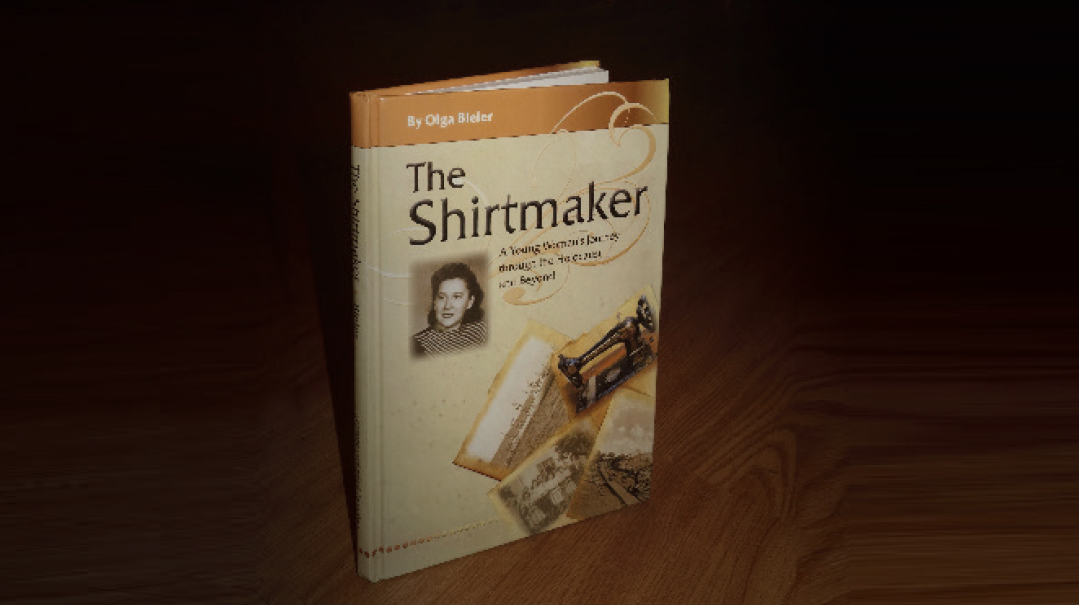Dream: Record family history for posterity

I wanted to preserve my mother’s story to give my children roots

Name: Helen Benporath
Dream: Record family history for posterity
Location: Israel/Melbourne
Growing up in Sydney, Australia, in a family of proudly traditional Jews, I was acutely aware that my parents were Holocaust survivors. But I didn’t know many details of their war experiences.
I was a typical self-absorbed adolescent, so even when I had a school assignment about my parents’ youth, I kept it short and sweet, not absorbing much; on the one occasion that my father really shared his past, it went in one ear and out the other.
With age and maturity, though, came the dawning realization that my parents’ story needed to be recorded. If I didn’t want my children to grow up rootless and oblivious of their past, my parents’ testimony needed to be preserved for future generations.
When I began thinking along those lines, though, I was a busy mom of seven little Benporaths, who were joined by twins just a couple of years later, so I didn’t act on that idea for some years. There simply wasn’t time.
And then my father, who had always hoped to take me to visit his hometown in Czechoslovakia, passed away, and I was left with the regret that I’d missed an opportunity. At that point, some 20 years ago, I was just ready to explore the past, and suddenly, yet another link was gone.
My dismay over the lost opportunity to record my father’s story lingered and spurred me on, until the time was ripe for me to act on it.
One day, I spotted an ad in an English-language circular for Life Stories Unlimited. Run by Varda Branfman and Esther Chana Stromberg, they offered services to interview, transcribe, and write an individual’s life story. As soon as I saw it, I said, “This would be perfect!”
When my mother visited Israel for my son’s bar mitzvah in 2012, I asked her if she’d work with me to commit her story to writing. She was a bit hesitant at first, but agreed for the sake of the grandchildren.
Mrs. Stromberg came to interview my mother three times. I gave them their privacy.
It was very challenging for Mommy. She had to confront all the pain of her past, and she broke down a number of times while reliving it. But she persevered, because that’s who she was — a fighter. “I told her things I’ve never told you,” she told us afterward. There was the story of the girl whose life she’d saved during a selection, boldly telling Mengele they were sisters, causing him to relent on the other girl’s death sentence and send them to the right together.
I’d always been amazed by my mother’s resilience, but hearing her stories in detail increased that admiration exponentially.
The writers then transcribed the recorded interviews and wove it into a compelling narrative, very much in my mother’s voice. English being my mother’s second language, it still needed a bit of polish, which was provided by my daughter Sara, a professional editor.
Putting out any sort of book is a collaborative effort that takes an entire team. Varda was our mover and shaker, Esther Chana our writer, Sara our editor, and me? I did none of the writing or editorial work and had no professional opinion on any of the questions that arose. But I oversaw the project, suggested content, and had the privilege of saying yea or nay.
The work took the better part of a year, until finally I received the call: “Helen, your books are here.”
Of the 100 professionally typeset, bound books, some have gone to family members, while others have been sent to Holocaust museums and libraries around the world. The first generation of relatives devoured it with enthusiasm and interest; the second, with mild curiosity, demonstrating yet again how important it is to preserve these memories before communal awareness wanes.
As I age, I hold survivors in greater and greater awe. I feel great trepidation about what will be when none are left to bear witness, and I feel very grateful that I’ve been able to contribute to perpetuating their memory. I hope others will follow my example and save their families’ stories.
If you could visit any historical era, which would it be?
My parents’ young adulthood in Israel during the early years of the state. My father fought in the War of Independence. When I read about that era, I always admire the determination and tenacity they had.
What long-held dream did you ultimately fulfill?
Making aliyah, which we did about ten years ago. We left three adult children and grandchildren behind, which is difficult. We do, however, feel that living in Israel gives us a tremendous sense of sheleimus in our Yiddishkeit.
What do you still dream of accomplishing?
If my other commitments would allow it, I’d really like to volunteer in some sort of helping capacity. I also hope to return to my parents’ birthplaces to see where they lived, visit family kevarim, and get a better feel for my parents’ background.
(Originally featured in Family First, Issue 695)
Oops! We could not locate your form.






